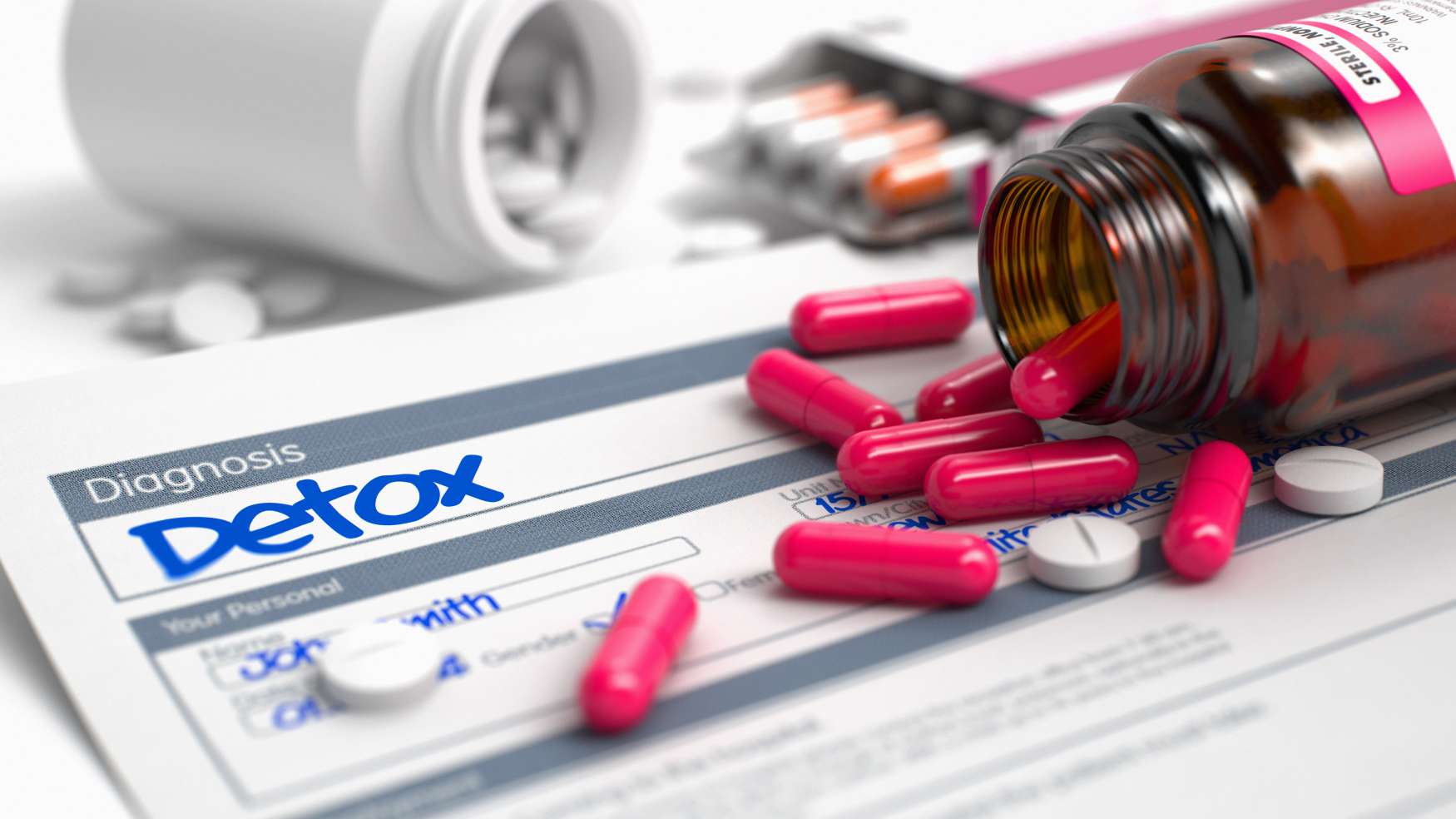Substance use disorder is a highly complex and challenging disease. While outsiders may have trouble understanding why addicts and alcoholics simply can’t stop using, addicts and alcoholics know that it is far easier said than done. This is especially true for those who have ended up physically and/or psychologically dependent on drugs or alcohol.
Being physically dependent on a substance means that the body (which has made several changes to adapt to the presence of the addictive substance) requires that substance in order to function. Being psychologically dependent on drugs or alcohol means that the user does not believe that they can carry on without the use of addictive substances. For many people, both physical and psychological dependence occur simultaneously. And when this is the case, addicts and alcoholics can struggle significantly with trying to end their active addiction independently. This is why detoxing is a vital step in recovery.
What is Detox?
Detox is the process of ridding the body of mind-altering and habit-forming substances. In order to detox, a person has to fully stop using the substance or substances that they are addicted to. When this happens, withdrawal symptoms begin to develop. The type, amount, and severity of withdrawal symptoms will depend on the person’s relationship with substance abuse. Typically, the more that a drug or alcohol has been abused, the more difficult the detox period is. With the appropriate medical and psychological attention, those who want to detox can do so safely, but attempting to detox at home can be much more difficult and potentially dangerous.
For some, detoxing is mild and does not intrude in their everyday lives. But for others, detoxing can trigger a full stop and can even be dangerous.
Dangers of Detoxing at Home
Detox is a process that is best done in a medical setting, especially if the person is dependent on a substance. Most types of drug withdrawal will produce unpleasant withdrawal symptoms that can range from being uncomfortable to painful for a week or so, but usually that is the extent of the detox. Sometimes, however, detox can be much more challenging and can cost a person their life if they do not have the appropriate care.
What type of dangers can a person experience if they try to detox on their own? From physical health complications to psychological challenges, the entire process can turn serious and fast. Some of the greatest dangers associated with detoxing at home can include:
Dehydration
Some of the most common withdrawal symptoms that people experience regardless of what type of substance they are detoxing from are vomiting and diarrhea. These symptoms are far from glamorous and can quickly make someone feel weak. If detoxing on one’s own, a person is less likely to stay hydrated or effectively mitigate their gastrointestinal problems, meaning that they could persist longer and even become more severe. The more output, the more likely dehydration becomes. Dehydration can lead to issues such as syncope, constipation, headaches and migraines, muscle aches and spasms, organ damage or failure, and malnutrition if it is not treated.
Greater risk for relapse
The withdrawal symptoms that one can endure during detox can range from being minor to absolutely crippling. The very first stage of detox can be misleading, as some symptoms start to set in but are seemingly manageable. As time passes, however, withdrawal symptoms get worse and can peak by a few days into the detox process. When withdrawal symptoms start to become more prominent, a person may make the call to stop detoxing altogether and begin using again. That is because once the body gets the substance it wants, the symptoms go away. The greatest risk in relapse is that a person will fully fall back into their addictive ways and potentially cause more damage to their lives.
Increased risk for overdose
Should a person relapse when attempting to detox on their own, they will be at an increased risk for overdosing. This is especially true if a person has already been detoxing for a period of time. The risk of overdose is greater at this time because the body is no longer used to the same levels of drugs and/or alcohol the person was using before. So, if a person goes right back to using the amount they were, they can suffer an overdose, which can be fatal.
As mentioned before, detoxing from most addictive substances can be painful but isn’t usually life-threatening. However, that does not mean that there aren’t types of detox that do not pose potentially fatal withdrawal symptoms. For example, detoxing from alcohol can result in death if not done properly.
Dangers of Alcohol Detox at Home
Someone who is dependent on alcohol and who wants to stop drinking should always seek professional help to do so. That is because detoxing from alcohol can produce symptoms that can threaten a person’s well-being. Abusing alcohol regularly and then suddenly ceasing all use can lead to the onset of the following possibly deadly withdrawal symptoms:
- Dehydration (vital organ failure, kidney failure in particular)
- High blood pressure (stroke, heart attack)
- Fever (loss of consciousness, rapid breathing, seizures, dehydration)
- Seizures (can result in a deadly fall or be fatal in themselves)
These symptoms are some of the symptoms most commonly associated with delirium tremens, or the DT’s. The DT’s are a set of severe symptoms that can begin within the first few days of alcohol withdrawal. If left untreated, they can cause death.
Benefits of Detoxing at a Treatment Facility
Choosing to perform alcohol detox at home or any other type of detox is a risk that should never be taken because of how quickly the situation can become unhealthy. If you are addicted to drugs or alcohol and want to stop using, begin your recovery in a safe, secure treatment setting. There, you can detox and benefit from the following:
- Vital signs being monitored regularly
- Access to over-the-counter and prescription medications that can help treat and minimize the presence of withdrawal symptoms
- Connection to mental healthcare specialists who can help you manage withdrawal symptoms such as anxiety, depression, paranoia, etc.
- Access to medical professionals who can administer immediate, effective treatment should complications arise during detox
- Increased likelihood of continuity of care
No matter if you think you will need help during detox or not, reaching out for professional help prior to restricting your use or going cold turkey is the most vital step to take. Doing so can not only set you up for success but also save your life.






